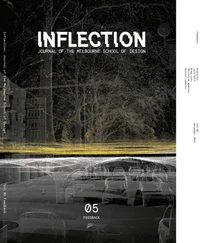Peter Cawdron - Feedback
Здесь есть возможность читать онлайн «Peter Cawdron - Feedback» весь текст электронной книги совершенно бесплатно (целиком полную версию без сокращений). В некоторых случаях можно слушать аудио, скачать через торрент в формате fb2 и присутствует краткое содержание. Год выпуска: 2014, ISBN: 2014, Издательство: Smashwords, Жанр: Фантастика и фэнтези, на английском языке. Описание произведения, (предисловие) а так же отзывы посетителей доступны на портале библиотеки ЛибКат.
- Название:Feedback
- Автор:
- Издательство:Smashwords
- Жанр:
- Год:2014
- ISBN:9781310079849
- Рейтинг книги:3 / 5. Голосов: 1
-
Избранное:Добавить в избранное
- Отзывы:
-
Ваша оценка:
- 60
- 1
- 2
- 3
- 4
- 5
Feedback: краткое содержание, описание и аннотация
Предлагаем к чтению аннотацию, описание, краткое содержание или предисловие (зависит от того, что написал сам автор книги «Feedback»). Если вы не нашли необходимую информацию о книге — напишите в комментариях, мы постараемся отыскать её.
Feedback
Feedback — читать онлайн бесплатно полную книгу (весь текст) целиком
Ниже представлен текст книги, разбитый по страницам. Система сохранения места последней прочитанной страницы, позволяет с удобством читать онлайн бесплатно книгу «Feedback», без необходимости каждый раз заново искать на чём Вы остановились. Поставьте закладку, и сможете в любой момент перейти на страницу, на которой закончили чтение.
Интервал:
Закладка:
“But dragons?” Lassiter whispered softly.
Lassiter seemed unusually flustered. Jae-Sun realized he had his undivided attention. Central command might consider the existence of dragons classified, but Jae-Sun didn’t care. The ever changing whims of bureaucrats were an annoyance to the old man. He’d lived to see Homo sapiens escape the shackles of Earth and fight off the concept of death, extending human life by a factor of ten. As one of the theoretical physicists that made the space-time compression drive possible, he had a certain amount of latitude. Some called it irreverence.
“It’s not that much of a surprise when you think about it,” Jae-Sun said. “The Oort cloud is impossibly large. There’s more pre-organic matter here than there is in all the planets combined, but it is so broadly spread out that it appears insignificant. The Oort cloud drifts on the edge of interstellar space, held loosely in place by the weakened pull of the sun, over a light-year away.
“To us, the Oort cloud seems like a far-flung, desolate, rocky, icy shell surrounding the sun, an unlikely place to find life. But think about space as a biological environment. Stars are like tar pits, sucking in any creature that strays too close. But out here, we’re on the edge of the tidal zone. Out here, a nudge one way or the other can send you to the Oort Cloud of dozens of other stars with very little exertion.”
Lassiter asked, “And these dragons? They inhabit the Oort Cloud?”
“Yes. Although dragon isn’t the term I’d use,” Jae-Sun replied. “Dragon conjures up images of fire and damnation raining down from some dark, winged monster. No, I’d call them celestial cetaceans or migratory birds. If we’re going to use some kind of terrestrial analogy, we should make it one befitting their character.”
“Birds? Whales?” Lassiter asked.
“Yes. Both of them are renowned for their astonishing migrations, and from what I’ve observed these dragons, for lack of a better term, have a similar mode of being.”
“Are they intelligent?”
“I suspect they’re more intelligent than we believe.” Jae-Sun paused before adding, “They may be more intelligent than us.”
“Then why don’t they make contact with us?” Lassiter asked as the two astronauts slowed to barely fifty miles an hour and began skimming over the surface of the asteroid toward a predetermined waypoint. Due to the undulating nature of the asteroid, their altitude fluctuated anywhere from a few hundred feet to almost a thousand feet.
“Why don’t dolphins learn English?” Jae-Sun asked. “Why doesn’t an octopus learn how to use a crowbar? Why don’t chimps have a mastery of fire?”
He paused for a moment, letting those thoughts sink in before continuing.
“It’s not in their nature. Contact may be a biological imperative for us, but it’s apparently not for them. If anything, they seem wary of us. We’re the aggressors, escaping the gravitational confines of our planet and encroaching on their natural habitat. From their perspective, they have every reason to avoid us.”
Lassiter slowed their forward momentum, dropping them closer to the asteroid as the waypoint approached. The instrumentation cube slowed in tandem with Jae-Sun.
“But you’ve found one?” Lassiter asked.
“I think I may have found one,” Jae-Sun replied. “It’s hard to be sure. These things can move through both space and time, but they leave a trail. Each time they warp, they emit high-energy particles. And they follow a pattern, in the same way that birds will follow the same path to escape the coming of winter.”
Lassiter pulled them to a halt, lowering them down to within two feet of the asteroid. Jae-Sun watched as he established buoyancy, ensuring their suits automatically counteracted the weak pull of gravity from the asteroid.
The two astronauts were side on to the asteroid, so the surface appeared like a wall in front of them, with the distant sunlight running left to right. Pin pricks of light edged around the raised, stippled surface, while long black shadows stretched away from them.
Jae-Sun reached out his gloved hand. His fingers sank effortlessly into the fine powder on the surface of the asteroid. He moved his fingers in a figure eight and watched as the fine powder swirled as though it were suspended in water.
“Never lose your childlike sense of wonder,” Jae-Sun said, turning to Lassiter. “When you go to Enceladus, don’t lose your appreciation for how astonishing it is to walk on another world. Even the humblest of microbes on that small moon represent billions of years of evolutionary change, and that’s not something to be taken lightly.”
Lassiter nodded inside his helmet.
“First contact protocols necessitate that you wait here,” Jae-Sun said. “Is that understood?”
“Yes sir,” Lassiter replied. “Buddy mode is off.”
Lassiter’s gloved hands tapped at his wrist computer, returning local EVA control to Jae-Sun.
“Whatever happens,” Jae-Sun said, already drifting away from him. “Do not follow me. If I fail to return, you are to initiate the containment plan and deploy robotic probes. Understood?”
“Yes, sir.”
Jae-Sun stretched out his hand and thrust away from Lassiter. The white cube raced after him, keeping pace beside him.
Jae-Sun checked his wrist computer, watching the readouts relating to altitude above the rocky surface, way-point distances and signal strength. The pitted surface of the asteroid glided beneath him.
At a hundred yards, Jae-Sun slowed to a halt and turned, looking back at Lassiter in the distance. The astronaut floated above the dusty surface, his spotlights illuminating the rough surface.
“Com check,” Jae-Sun said.
“Coms are good,” Lassiter replied.
Jae-Sun raised his gloved hand and waved. The white suited astronaut waved back in reply.
Jae-Sun turned and continued on. He brought up a topographical overlay in his heads-up display and began moving to a second way-point, one known only to him.
After crossing a ridge and skirting the edge of a large crater, Jae-Sun knew he had moved out of line of sight. Neither Lassiter or the Excelsior could see him as he’d moved over the horizon from their perspective. Coms would still work, but the signal would be degraded. This was part of the plan. He’d convinced them there was a need to be coy in the initial approach to these creatures. Dragons had proven elusive for hundreds of years, since they were first spotted by the miners on Pluto. Now that one was at rest on an asteroid, the last thing anyone wanted to do was to spook the creature, and that played right into Jae-Sun’s hands.
Being one of the pioneers of manned interplanetary space flight had its benefits, he thought. No one else could have gotten away with this without dozens of questions being raised from generals across the command structure, but Jae-Sun was trusted. Jae-Sun knew he was about to betray that trust, but he had a higher purpose than the capture of one of these aliens. He had a promise to keep. Where others struggled to understand the mechanism by which the dragons moved and how they evaded observation, Jae-Sun already knew their secret: they moved through time.
A chasm opened up beneath him. The readout on his wrist computer indicated the probability of finding the alien within the dark canyon at 78% based on available readings and the various, faint electromagnetic emissions. Scratch marks lined a rock wall, appearing as though something large had scraped against the dust and rocks.
“I’m moving into a chasm,” Jae-Sun said. “I may lose coms.”
“Roger that,” Lassiter replied. Already, his voice was breaking up with the low signal-to-noise ratio. “Still receiving telemetry.”
Читать дальшеИнтервал:
Закладка:
Похожие книги на «Feedback»
Представляем Вашему вниманию похожие книги на «Feedback» списком для выбора. Мы отобрали схожую по названию и смыслу литературу в надежде предоставить читателям больше вариантов отыскать новые, интересные, ещё непрочитанные произведения.
Обсуждение, отзывы о книге «Feedback» и просто собственные мнения читателей. Оставьте ваши комментарии, напишите, что Вы думаете о произведении, его смысле или главных героях. Укажите что конкретно понравилось, а что нет, и почему Вы так считаете.












